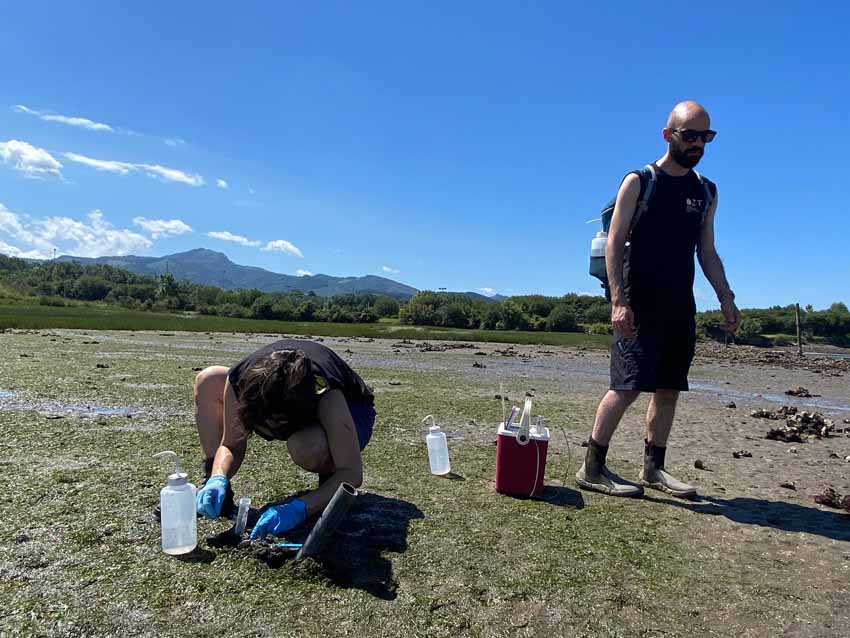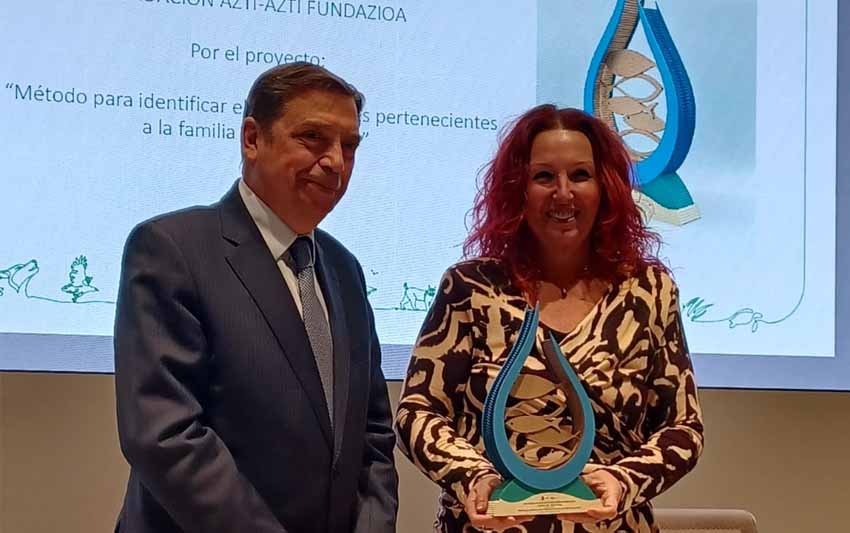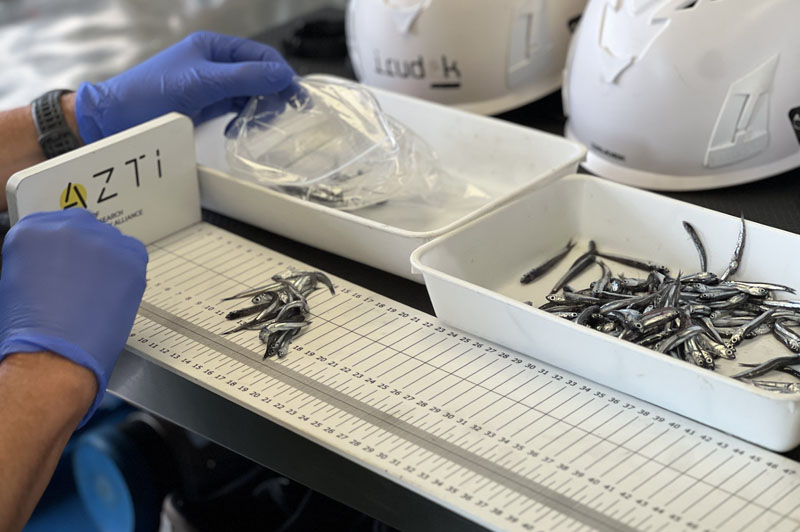The first shortfin mako shark tagged in the Bay of Biscay by AZTI, advancing conservation efforts
Últimas noticias
A pioneering genetic catalogue reveals hidden biodiversity in Basque estuary sediments
Uhinak Technical Committee Sets the Key Points for the 7th International Congress on Climate Change and the Coast
“We fishermen are the ones who earn the least”
- The research centre has begun monitoring shortfin mako sharks (Isurus oxyrinchus), a species listed as endangered by the International Union for Conservation of Nature (IUCN) Red List.
- This initiative has already uncovered new data on the migratory patterns of blue sharks, revealing their near year-round presence along the Basque coast.
- The research aims to provide the fishing industry with key insights to reduce bycatch of endangered species and support conservation efforts
Pasaia, 17 December 2024 – The shortfin mako shark, also known as the common mako or mako shark, can grow up to 4.5 metres in length and live for over 30 years. Found in worldwide waters including the Bay of Biscay, this species is currently classified as “endangered” by the International Union for Conservation of Nature (IUCN). The latest assessment by ICCAT has also identified it as overexploited.
Therefore, research is essential to provide insights into their movements and behaviour, aiding the conservation and recovery of shark populations like the mako, which are both, key species to marine ecosystems and also has commercial importance.
To address the challenge of reducing bycatch in the Bay of Biscay, the AZTI research centre has been conducting a study since 2023 that monitors different shark specimens. This year, for the first time, the team successfully tagged a 1.4-metre-long female mako shark. This specimen has been named Amalur, which means “mother earth” in Basque, in a gesture that highlights the importance of this species as an integral part of the balance of marine ecosystems.
“In mid-August, we deployed two different satellite tags in this specimen to gather data on both, horizontal and vertical movements. It is currently on a southward route, leaving behind Madeira Island in Portugal. One of the tags transmits its position in real time whenever the shark surfaces,” explained Maite Erauskin-Extramiana, a fisheries management researcher at AZTI.
This tagged mako joins the blue sharks monitored during 2023 and 2024, ranging from small juveniles to large adults. Although the project is still in its early stages, it has already provided valuable new data on their preferred habitats and seasonal behaviours.
“Our analyses suggest that blue sharks inhabit our coastal waters almost year-round, contrary to earlier beliefs that they were merely passing through during their migration to Galician waters in summer,” noted Erauskin-Extramiana.
Preliminary evaluations have also revealed frequent movement of blue sharks within the Bay of Biscay, with submarine canyon areas emerging as particularly important habitats for these species.

Shark conservation: Coexistence with Fishing Activities
The AZTI-led initiative seeks to promote coexistence between human activities, such as fishing, and the shark species residing in the Bay of Biscay by improving our understanding of their behavioural patterns.
“It is crucial to identify the seasonal and spatial preferences of sharks to develop effective management measures that reduce bycatch-related mortality and aid in their population recovery,” adds the AZTI researcher.
To increase the public awareness and engagement in shark conservation, AZTI is collaborating with the German organisation Ocean Collective. This partnership has resulted in a series of educational videos showcasing the project and the diverse shark species found along the Basque coast, highlighting their ecological importance. The initiative seeks to dispel the traditional perception of sharks as merely fearsome predators.
The project is funded by the Basque Government through grants from the European Maritime, Fisheries and Aquaculture Fund (EMFAF). Its success hinges on collaboration with various stakeholders, including the fishing industry, recreational anglers (Fishing and Sailing the Basque Country), shark tourism operators (Mako Pako and Caila Diving), and the wider public. The shark tagging and audio-visual production is supported by the Ocean Collective and funded by the Ocean Wildlife Project.







